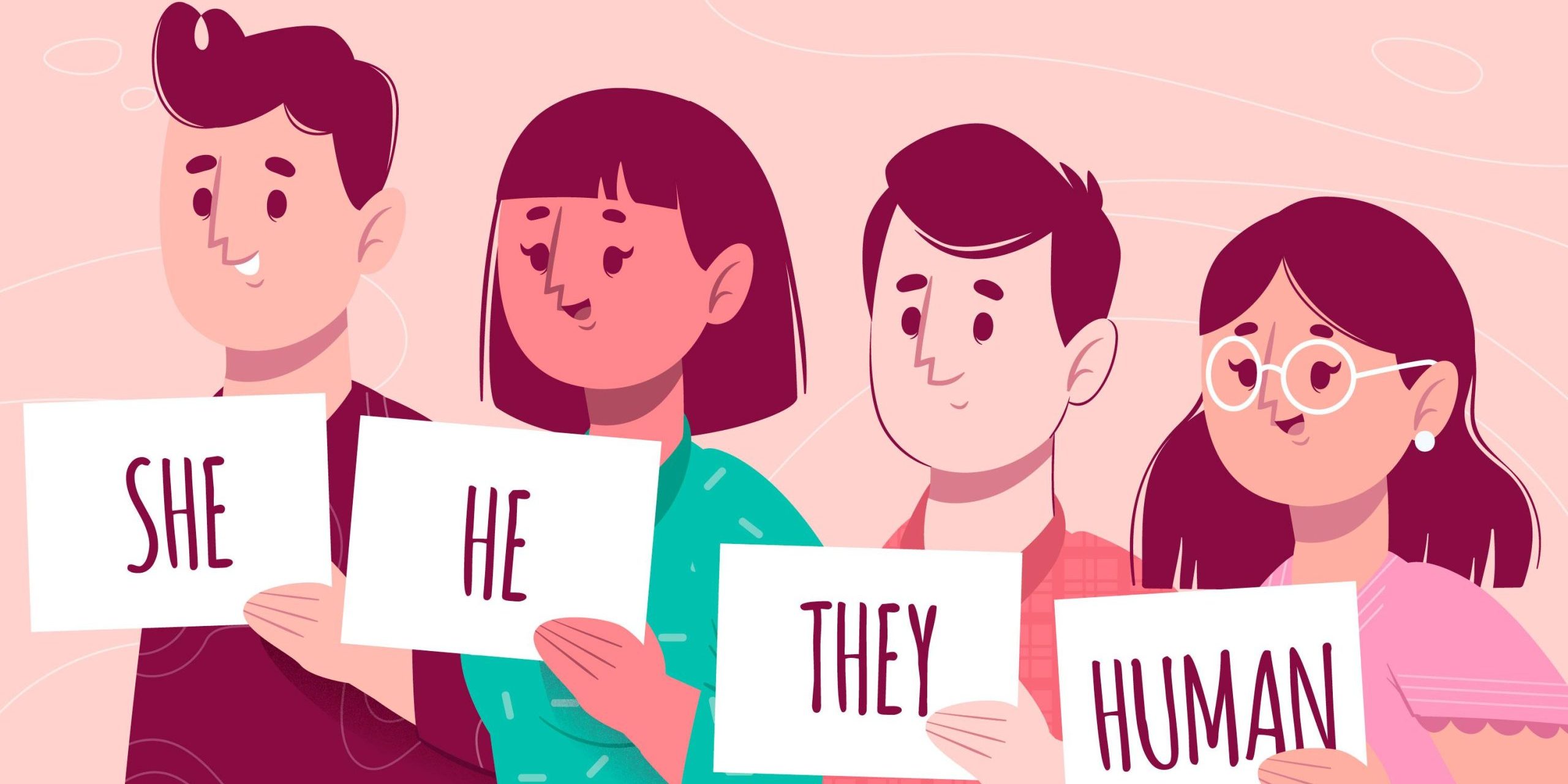
Jerry Dave Ntwari is a University of Ottawa student, specialized in International Development and Globalization with a Minor in Political Science. He is interested in international relations and politics, especially as it relates to development. He gained experience working for different NGOs as a researcher and was a summer intern under uOttawa’s Social Sciences Faculty’s placement, where he was working with the Myanmar team for their Federalism and Gender project.
Introduction
The marginalization of individuals based on gender identity is a pressing concern faced by minority populations all around the world. Analyzing the role played by federal governance in mitigating the inequalities which arise from this marginalization is an area that requires greater attention, especially with regard to the challenges faced by women and queer people in both federal and non-federal countries.
While scholars and researchers have undertaken a great deal of important work in the field of gender equality and federalism, there remain areas that have yet to receive concerted attention. This piece aims to draw attention to one of these areas by highlighting the experiences of women and queer persons (particularly transgender individuals) in Southeast Asia. Such an examination can make a valuable contribution to the existing literature on gender equality and federalism by drawing out existing themes and applying them to the case of other gender minorities. Though the scope of this topic is significant, the analysis presented here is primarily concerned with healthcare and economic challenges faced by women and queer persons and how decentralization can be used as a tool for inclusion and development in combatting these issues.
Gender (In)equality
Gender Equality in Southeast Asia
In recent decades, many countries in Southeast Asia have experienced unprecedented and miraculous economic growth (Apodaca, 2002). This growth coincides with the often-contentious relationship between increasing globalization and human rights. As a human right that is greatly influenced by cultural norms (Francisco, 2007), examining the implications of economic growth on gender equality is a pertinent and timely topic in the Southeast Asian context. International development scholars such as Amartya Sen note that women are affected the most by rising inequalities (Idem), and that this impact is evident in how cultural norms both affect gender norms and inform gender inequality. In addition to these cultural norms, women often lack access to resources, which in turn limits their economic opportunities.
In addition to the gender equality issues faced by cisgender women, it is important to include the implications of these challenges for people of gender minorities (especially transgender women) in any gender analysis. Because people of gender minorities often excluded from traditional approaches to gender analysis (Colaço & Watson-Grant, 2021) it is critical to highlight the unique challenges faced by these populations when seeking to develop comprehensive and inclusive approaches to inclusive gender analysis. While it is undoubtedly more difficult for cisgender women to access resources in Southeast Asia, it is important to note that transgender individuals face unique challenges that make accessing healthcare difficult. For example, there are limitations to transgender inclusive healthcare in Vietnam (Do & Nguyen, 2020) and there are substantial discriminatory barriers for gender nonconforming people to access adequate education in Myanmar, which constitutes legalized discrimination (Chua & Gilbert, 2015).

Economic Challenges and Opportunity
In many Southeast Asian countries, resource distribution favours men. For example, in the Philippines, according to traditional and cultural practices, land ownership and titling are under fathers and sons’ names. Even when land programs have been enacted to entitled women to own and be the title holders of land, women have only been beneficiaries in small numbers (Francisco, 2007). This creates inequalities as the credit needed to purchase land is biased towards those who already own property that can be used as collateral. Such systems put women in vulnerable positions, as they are more likely to seek informal arrangements to satisfy their need to acquire resources. This presents a substantial challenge, as land access is a crucial component of women’s economic empowerment as it brings financial stability and provides more access to resources (Pradipta, 2020). Challenges with women’s ability to access to land can also be seen in countries such as Malaysia and Indonesia, where women are rarely given the opportunity to make decisions at the village level about agricultural activity (Francisco, 2007).
The economic realities of gender nonconforming people in Southeast Asia are similar yet distinct from the challenges faced by cisgender women. For example, in Vietnam, transgender people experience discrimination throughout the employment recruitment process as well as in receiving adequate compensation and benefits for the work they do (Hoang & Oosterhoff, 2016). This makes it difficult for transgender people to access the resources required to lead a satisfying life. And while cisgender women are also disadvantaged by a patriarchal system, the experiences of transgender women highlight the specific difficulties that they face (difficulty accessing formal loans, barriers to receiving loan schemes) when seeking to advance their livelihoods (Hoang & Oosterhoff, 2018). A lack of access to education exacerbates the economic challenges faced by transgender persons in Southeast Asia. Discrimination in the higher education sector makes accessing the education required for higher level jobs difficult for transgender individuals. Transphobic violence forces many transgender people out of schooling systems (Hoang & Oosterhoff, 2016), which in turn affects their future employment options.
Healthcare Challenges for Queer People in Southeast Asia
In addition to specific economic challenges, LGBTQ+ peoples in Southeast Asia often face discrimination in medical settings. For example, in Vietnam, SOGI (Sexual Orientation and Gender Identity) minorities have been denied medical treatment and faced verbal abuse from staff (Do & Nguyen, 2020). This challenge is especially acute for transgender individuals, as they require constant care while undergoing medical transitions. Transgender individuals in these settings are at a higher risk of having their needs neglected and not receiving adequate medical care (idem).
In Malaysia, transgender people often avoid using existing healthcare services due to the fear of having their identity outed and/or being subject to violence within a medical setting as a consequence of their identity (Tan & Ling, 2022). Additionally, in many Southeast Asian countries, harmful practices such as conversion therapy are still considered normal and acceptable. Such processes have been shown to cause numerous mental health challenges in persons who have undergone them, which continues to alienate SOGI minority populations from healthcare systems (idem). These challenges highlight the need for culturally contextualized competency trainings within healthcare systems on caring for SOGI individuals.
Federalism and Decentralization in Practice
Federalism and Progressive Change
In the context of these challenges, it is pertinent to examine how governance structures can function as a tool to enact progressive changes for marginalized groups in Southeast Asia. One of the most successful comparative examples has been the case of marriage equality in the United States. As an important issue for queer communities, this is an acute example of federalism functioning as a pragmatic tool, as the federal government used its powers to broaden the definition of marriage to include homosexual couples (Knauer, 2018). Early gains were first made at the municipal level, then individual states began recognizing same-sex relationships. These efforts eventually culminated in the federal legalization of gay marriage in 2015 (Knauer, 2018). In this case, federalism was used (via the idea of policy transfer) as a tool for progressive change by allowing municipal and state governments the power to recognize the rights of same-sex couples prior to the federal government.
Any federal model should be sensitive to women’s issues as well as those specific to SOGI minorities. Federal models are even more effective if they are able to represent the varied interests of women and gender minorities (Forster, 2018). Approaching federalism through a gender sensitive framework by considering the unique interests and experiences of women and SOGI minorities when transferring political power throughout various levels of government presents an opportunity for important change to occur (Siahaan, 2003; Mukhopadhyay, 2005; Forster, 2020). Using decentralization and federalism in a gender conscious manner as political tools can be effective in obtaining gender sensitive reforms and protecting the interests of women and other gender minority groups (Vickers, 2013). In India, for example, the use of quotas to increase women’s representation in lower levels of government has demonstrated that it can be beneficial to local communities: it was found that women put greater emphasis on construction projects and were less likely to accept bribes (Mukhopadhyay, 2005). While the effect of women’s participation in governance in relation to federal and decentralized models is well established, expanding this principle to SOGI minorities presents an area to be further explored. The presence of multiple levels of government, each with the spaces and instruments necessary to afford decision making power to marginalized LBGTQ+ persons, increases the potential for progressive change.
Economic Opportunity
As gender minority groups are often excluded from certain economic opportunities, working towards the economic empowerment of women and other marginalized sexualities and genders is of the utmost importance for the full socioeconomic development of countries in Southeast Asia. Federal countries in the ASEAN community must work to ensure that marginalized groups have equal access to economic resources, access to enhanced capacity training, small credit access, and access to a safe education (ASEAN, 2017). In Malaysia and Indonesia, the most common reasons for the low representation of female entrepreneurs is a lack of access to education and credit (Tambunan, 2009). Creating accessible credit programs and entrepreneurship trainings (Francisco, 2007) are steps that can be taken by one level of government or multiple levels, as such programs are beneficial marginalized persons at both national and subnational levels. Federalism can therefore be used to provide local governments and organizations with the powers required to make economic capital accessible to marginalized genders by implementing gender sensitive policies and programs (Francisco, 2007).
Health Equality
In addition to making economic opportunity more accessible, having a healthcare system that is attentive to the specific needs to queer (and especially transgender) individuals is an important step in increasing both the safety of queer people and their overall levels of trust in healthcare and government institutions (Tan &Ling, 2022). Some of the general features of federal systems (such as the ability for subnational and local levels to experiment and create innovative policy) enables actors at the subnational and local levels to effectively work with local organizations that promote the well-being of sexual and gender minorities by providing support for transgender awareness in healthcare and increasing the diversity of gender education in the curriculum of medical and nursing schools (Do & Nguyen, 2020).

In centralized unitary states such as Thailand, there have been some recent successes in improving transgender inclusive healthcare. Certain local health clinics (in Bangkok and Pattaya) have successfully worked towards establishing greater inclusionary practices for transgender women by relating to them on a cultural and identity level, and by creating a destigmatizing atmosphere focused on the need for distinguishing trans-inclusive healthcare (Lynne & Enteen, 2021). Given such successes in centralized unitary systems, the increased access points available in federal and decentralized systems presents additional opportunities for advancing inclusive healthcare practices at national and subnational levels. By using decentralization as a tool to transfer power to local governments, more energy and money may be put towards providing specific healthcare to queer populations and advancing training on cultural competencies towards sexual and gender minorities (Do & Nguyen, 2020).
Conclusion
At all levels of governance, discussions on gender related issues and concerns should be as inclusive as possible. Moving forward, this means greater focus should be given to both inequalities between men and women as well as targeted discussions and emphasis on the inclusion of marginalized gender minorities. As we have seen, particularly in the Southeast Asian context, women are not equal to men when it comes to property rights and land access (Francisco, 2007), and additionally, sexual and gender minorities are also often denied equal access to quality education and healthcare (Do & Nguyen, 2020; Tan &Ling, 2022).
It is crucial to develop governance systems that are able to effectively respond to the unique challenges faced by women and other sexual and gender minority groups when it comes to economic and health rights. Federalism can assist in addressing these challenges by increasing opportunities for collaboration between all levels of government and ensuring that local governments are well placed to collaborate with local organizations targeting gender specific issues (Francisco, 2007; Do & Nguyen, 2020). However, despite the great potential for federal systems to support progressive changes, this is not always possible. This Janus-faced quality of federalism is demonstrated by the Australian case, where the states were favourable to advancing LGBTQ+ rights, but marriage recognition of same sex couples was blocked by the federal government (Smith, 2020). Potential strategies to combatting this outcome in Southeast Asian countries (where gender issues are heavily influenced by cultural norms) can include promoting citizen engagement by ensuring the local communities are equipped to adequately communicate with their populations prior to implementing major policies (OECD, 2019). Since decentralization works best when citizens are empowered, it is essential that local municipalities are afforded the autonomy to focus on civic engagement and participation (idem) while being supported in the processes of using cultural norms to develop beneficial strategies for the economic and health rights of women and people of SOGI minorities.
REFERENCES
Apodaca, C. (2002). The Globalization of Capital in East and Southeast Asia: Measuring the Impact on Human Rights Standards. Asian Survey, 42(6), 883–905. https://doi.org/10.1525/as.2002.42.6.883
ASEAN. (2017, November 13). Action Agenda on Mainstreaming Women’s Economic Empowerment (WEE) in ASEAN. Asean.org. https://asean.org/action-agenda-on-mainstreaming-womens-economic-empowerment-wee-in-asean/
Chua, L. J., & Gilbert, D. (2015). Sexual Orientation and Gender Identity Minorities in Transition: LGBT Rights and Activism in Myanmar. Human Rights Quarterly, 37(1), 1–28. https://www.jstor.org/stable/24518272
Colaço, R., & Watson-Grant, S. (2021). A Global Call to Action for Gender-Inclusive Data Collection and Use. RTI Press. https://doi.org/10.3768/rtipress.2021.pb.0026.2112
Do, T. T., & Nguyen, A. T. V. (2020). “They know better than we doctors do”: providers’ preparedness for transgender healthcare in Vietnam. Health Sociology Review, 29(1), 92–107. https://doi.org/10.1080/14461242.2020.1715814
Forster, C. (2018, June 4). Gender Equality and Federalism – 50 Shades of Federalism. 50 Shades of Federalism. http://50shadesoffederalism.com/policies/gender-equality-federalism/
Francisco, J. S. (2007). Gender Inequality, Poverty and Human Development in South East Asia. Development, 50(2), 103–114. https://doi.org/10.1057/palgrave.development.1100363
Hoang, T.-A. ., & Oosterhoff, P. (2016, February 1). Transgender at Work: Livelihoods for Transgender People in Vietnam. Opendocs.ids.ac.uk. https://opendocs.ids.ac.uk/opendocs/handle/20.500.12413/8869
Knauer, N. J. (2018). Federalism, marriage equality, and LGBT rights. In C. P. Banks (Ed.), Controversies in American Federalism and Public Policy(pp. 93–113). Routledge.
Knauer, N. J. (2020, April 21). The LGBT Equality Gap and Federalism. Papers.ssrn.com. https://papers.ssrn.com/sol3/papers.cfm?abstract_id=3581884
Lynne, A., & Enteen, J. B. (2021). Thai trans women’s agency and the destigmatisation of HIV-related care. Culture, Health & Sexuality, 1–15. https://doi.org/10.1080/13691058.2021.1933183
Mukhopadhyay, M. (2022). Decentralisation and Gender Equity in South Asia, An Issues paper. https://www.researchgate.net/publication/265566767_Decentralisation_and_Gender_Equity_in_South_Asia_An_Issues_paper
OECD. (2019). Making Decentralisation Work A HANDBOOK FOR POLICY-MAKERS Policy Highlights. https://www.oecd.org/cfe/Policy%20highlights_decentralisation-Final.pdf
Oosterhoff, P., & Hoang, T.-A. (2018). Transgender employment and entrepreneurialism in Vietnam. Gender & Development, 26(1), 33–51. https://doi.org/10.1080/13552074.2018.1429102
Pradipta, L. (2020). Land Resources Management in Southeast Asia: Redefining the Role of Women as Land Managers. KOMUNITAS: International Journal of Indonesian Society and Culture, 12(2), 198–208. https://doi.org/10.15294/komunitas.v12i2.24977
Siahaan, A. Y. (2003, January 1). The politics of gender and decentralization in Indonesia. Pdc.ceu.hu; International Policy Fellowships. http://pdc.ceu.hu/archive/00002592/
Smith, M. (2020). Federalism, courts and LGBTQ policy in Canada. In J. Vickers, J. Grace, & C. N. Collier (Eds.), Handbook on Gender, Diversity and Federalism (pp. 107–119). Edward Edgar Publishing, Inc. https://doi.org/10.4337/9781788119306.00019
Tambunan, T. (2009). Women entrepreneurship in Asian developing countries: Their development and main constraints. Journal of Development and Agricultural Economics, 1(2). http://www.academicjournals.org/JDAE
Tan, K. K. H., & Ling, S. A. (2022). Cultural Safety for LGBTQIA+ People: A Narrative Review and Implications for Health Care in Malaysia. Sexes, 3(3), 385–395. https://doi.org/10.3390/sexes3030029
Vickers, J. (2012). Is Federalism Gendered? Incorporating Gender into Studies of Federalism. Publius: The Journal of Federalism, 43(1), 1–23. https://doi.org/10.1093/publius/pjs024





